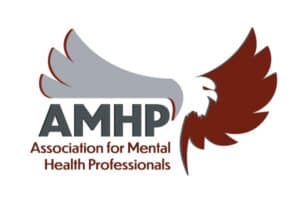Need More Website Traffic?

Chances are you think you need more website traffic. And you probably do! Most people default to the idea that they "need more SEO". No, what you need is more traffic.
Why Don't I Need More SEO?
SEO is just making sure the environment that envelopes your website is properly structured and sending the right mating signals to Google and all his friends. Assuming you have the proper local seo measures already in place on your website, and you've completed your business profile with Google and your Top 10 directories, the only thing "more SEO" will get you is a lighter wallet.
So How Do I Get More Traffic?
How do you catch more fish? Put more bait in the water. Bait equals content. For most small business owners (solo and group practitioners) that means writing blog posts. If you're comfortable creating audio or video content then go for it but it needs to look professional to someone you trust who will tell you the truth. Amateur looking material will do more harm than good as far as attracting new clients.
But I Can't Write
Well then find someone who can. Your spouse, one of your kids, grandkids, someone on your staff, or hire someone if you have to. All you need is someone who can interpret your thoughts and put sentences together. Or you could scratch out your own thoughts and have someone edit them into nice, chunks of creativity that will make you look good and make the phone ring. This part is only a problem if you want it to be.
Here's the Real Problem
Your competition comes from two primary sources: the large directories with older, more massive content and your local competitors (yes, you need to think of your "colleagues" as competitors) with better websites than you've put together. A large chunk of what I mean there is that their sites have more relevant content than yours does and they add to it on a regular basis.
So How Do I Compete With That?
Glad you asked. The answer really is this simple. You write relevant content about timely topics that people are searching for right now, and you utilize the search terms they're using in your blog post and its title, just to oversimplify it a bit (but not much).
If you're the only site with content about a specific topic someone's searching for and even the big-boy sites don't have anything directly related to it, your site is going to show up on Pg 1 for that search. Isn't that what you want?
How Long Will This Take to Produce Results?
Depends on who's asking and what they mean. The business owner means, "how long before I realize quantifiable and meaningful results to my bottom-line traffic?". The answer to that is, it depends on the volume of content you produce (once a week vs twice a year?) and the relevance to what today's searchers are looking for. If you write something weekly then give this 6 months and you should see results that make a difference.
If it's the group staff-member who wrote the post that's asking, then the answer is 24-48 hours. Your blog post should be catalogued in the search engine archives and available to the public within a day or two after posting. Maybe sooner. Are you hearing this? You can write a blog post about some very specific aspect of (pick a topic), title it with the likely search terms people are using to find that content and you'll show up. The directories that typically take up all of Pg 1 and most of Pg 2 won't have this content and so you'll show up before they do. Your local competitor is not as ambitious as you are so they won't show up at all for this topic. That's your opportunity to stand out.
You starting to see how this works?
Where Do I Start?
1. Your website needs the ability to allow you to post blog posts.
2. You need to pre-determine the subject matter categories you want to be found for (don't write about the benefits of EMDR work if you don't offer it).
3. Then, (and this is where the real "SEO" work begins) dive deeper into each of those categories and find out what real people are really searching for, and develop your uber-specific topics and associated keyword phrases.
Example, EMDR may be one of your topic categories but don't write generalist material about EMDR because that's what your uninformed competitor is doing. Instead, write about "the advantages EMDR work may provide to returning veterans who have experienced the loss of at least one limb", etc. The more specific the better but make sure there's a market for your topic. The best bait in the world is no good if there's no fish in the pond.
Summary
Need more traffic? Then you need to write more content. Write relevant, evergreen content. A year from now you'll have 52 blog posts (that's a lot!), a measurable traffic increase, and an advancing, solid local reputation for the topics you want your practice to be known for. So, what are the top 3 categories you want to write about, that you want to be known for?
Got Something to Say?
These posts are based on the beliefs and personal experience of the post's author. Please feel free to leave your civil, constructive comments below. We try very hard to back up our statements with fact-based data and we ask you to do the same in your comments. You do not need to be logged in to leave a comment.
About the Author
 Phillip's background has blessed him with a variety of interests, skills, and tools to get things done. He spent 25 years in the printing and marketing industry before meeting Kathleen Mills in 2015. They quickly figured out that they made a pretty good business team and, owing to Kathleen's story, embarked upon a mission that would see the creation of PracticeMentors.us and eventually the Association for Mental Health Professionals.
Phillip's background has blessed him with a variety of interests, skills, and tools to get things done. He spent 25 years in the printing and marketing industry before meeting Kathleen Mills in 2015. They quickly figured out that they made a pretty good business team and, owing to Kathleen's story, embarked upon a mission that would see the creation of PracticeMentors.us and eventually the Association for Mental Health Professionals.


Awesome content regarding SEO, very relevant and informative! Everyone as you said can use more traffic. Very helpful!